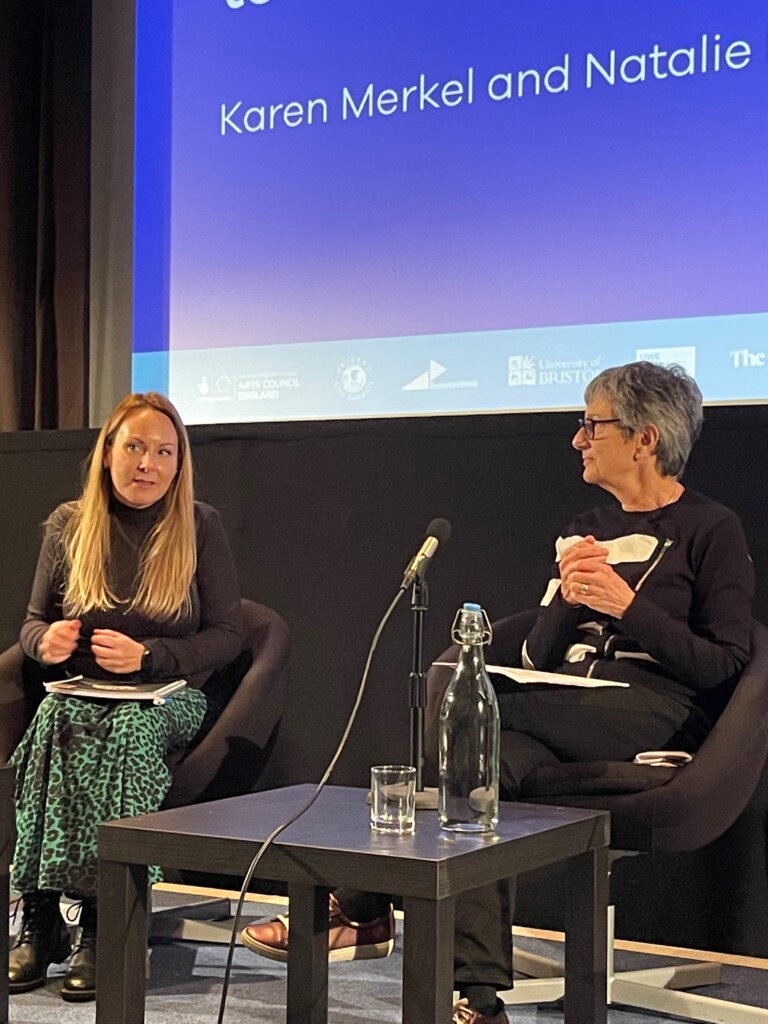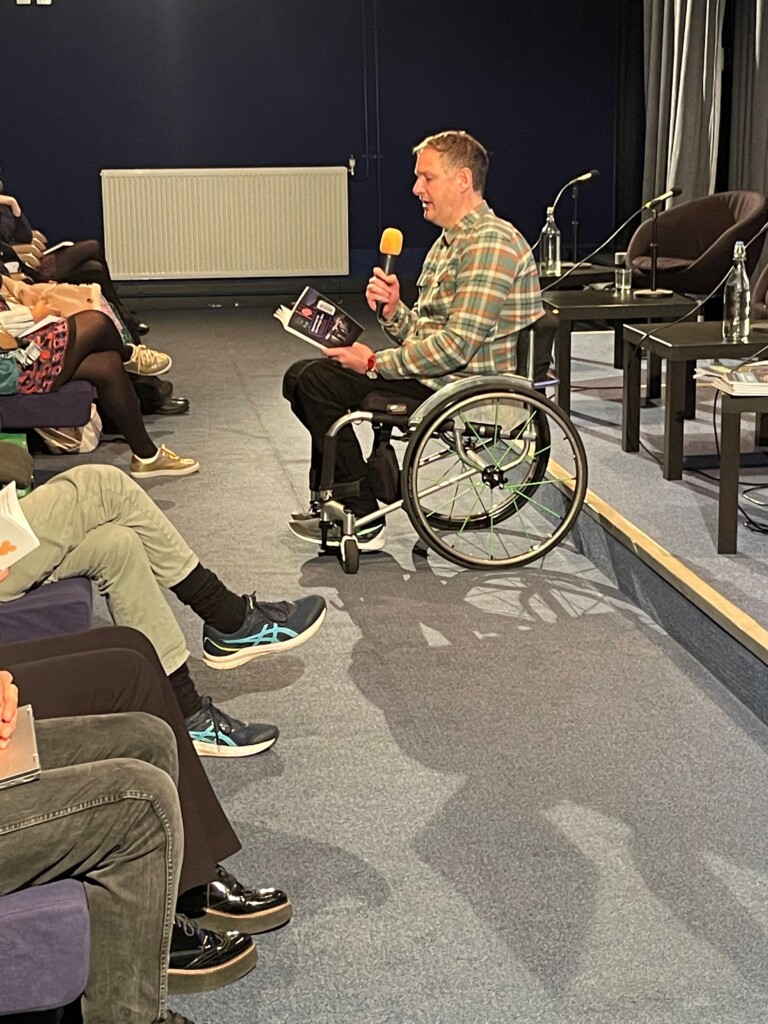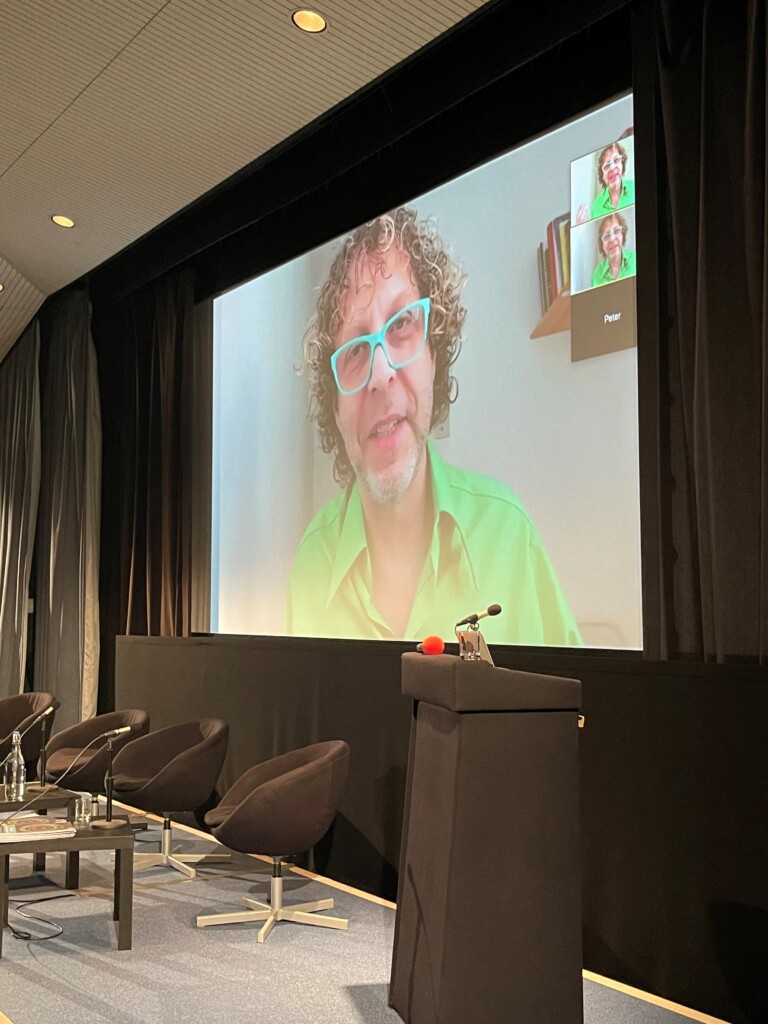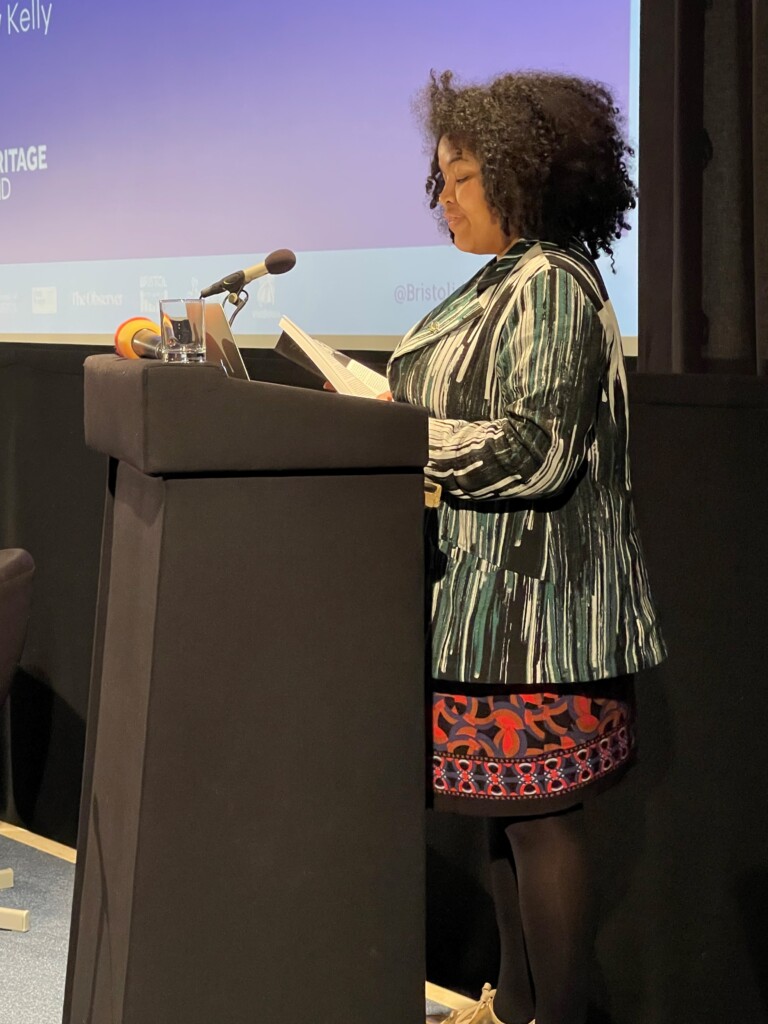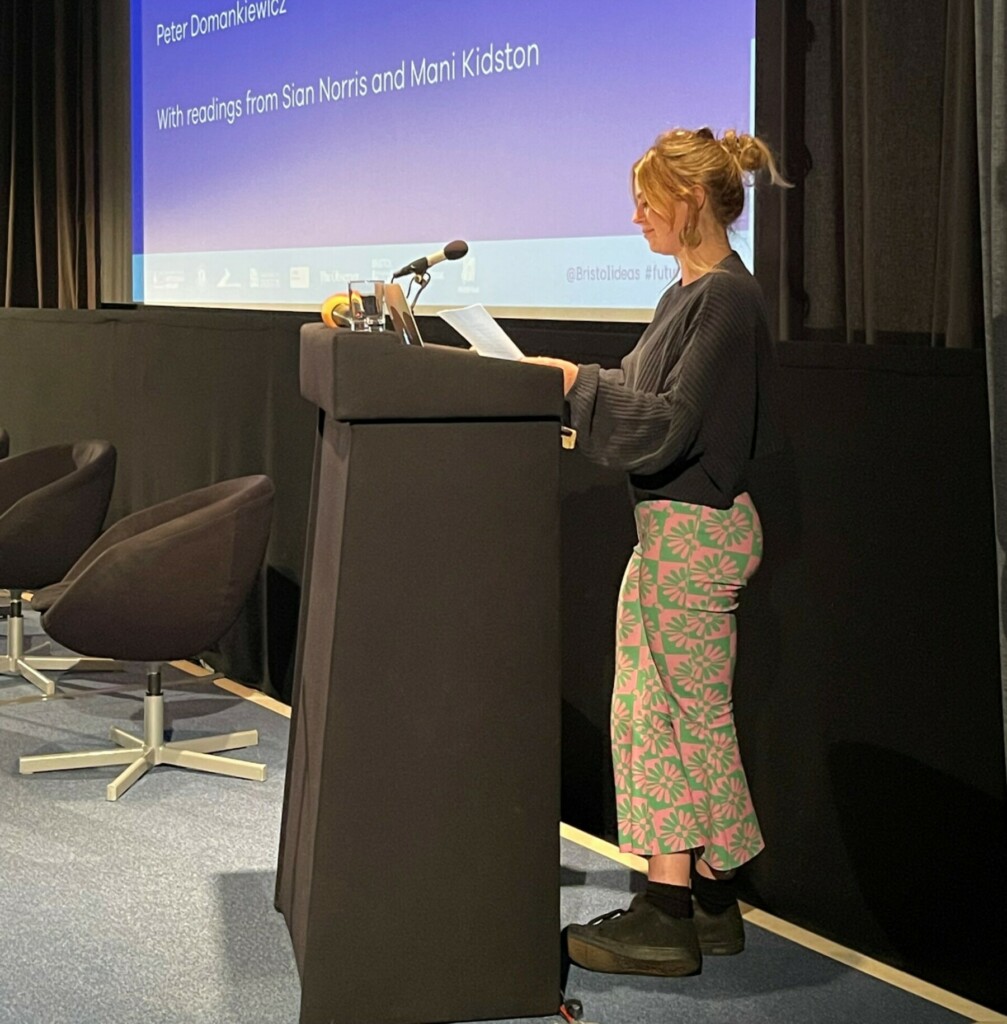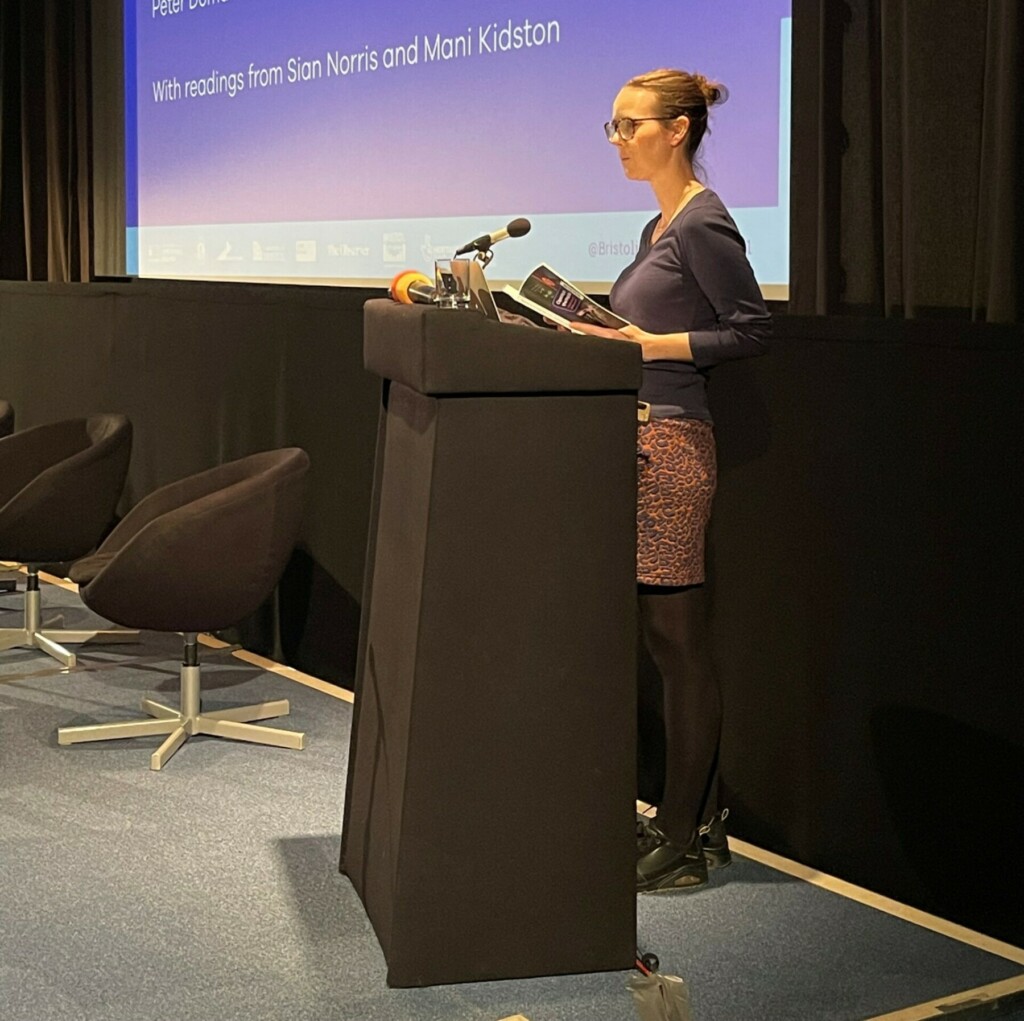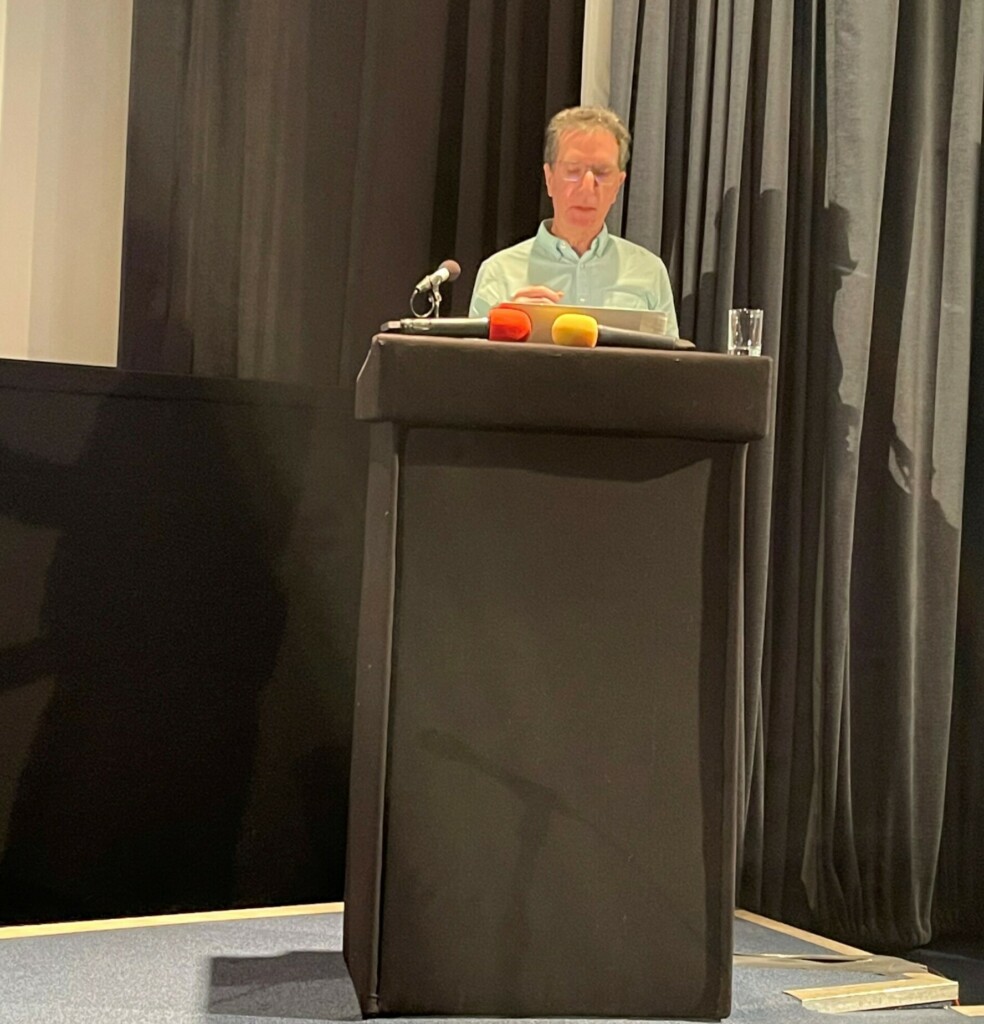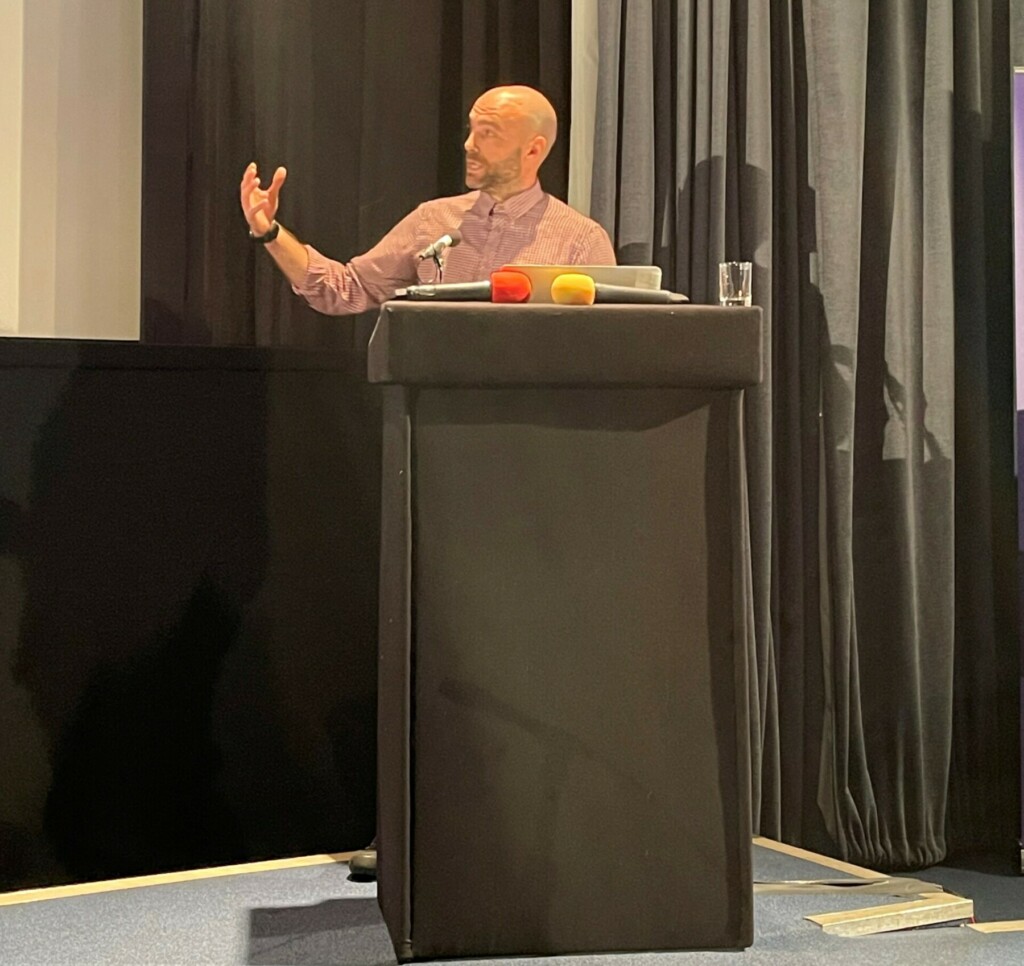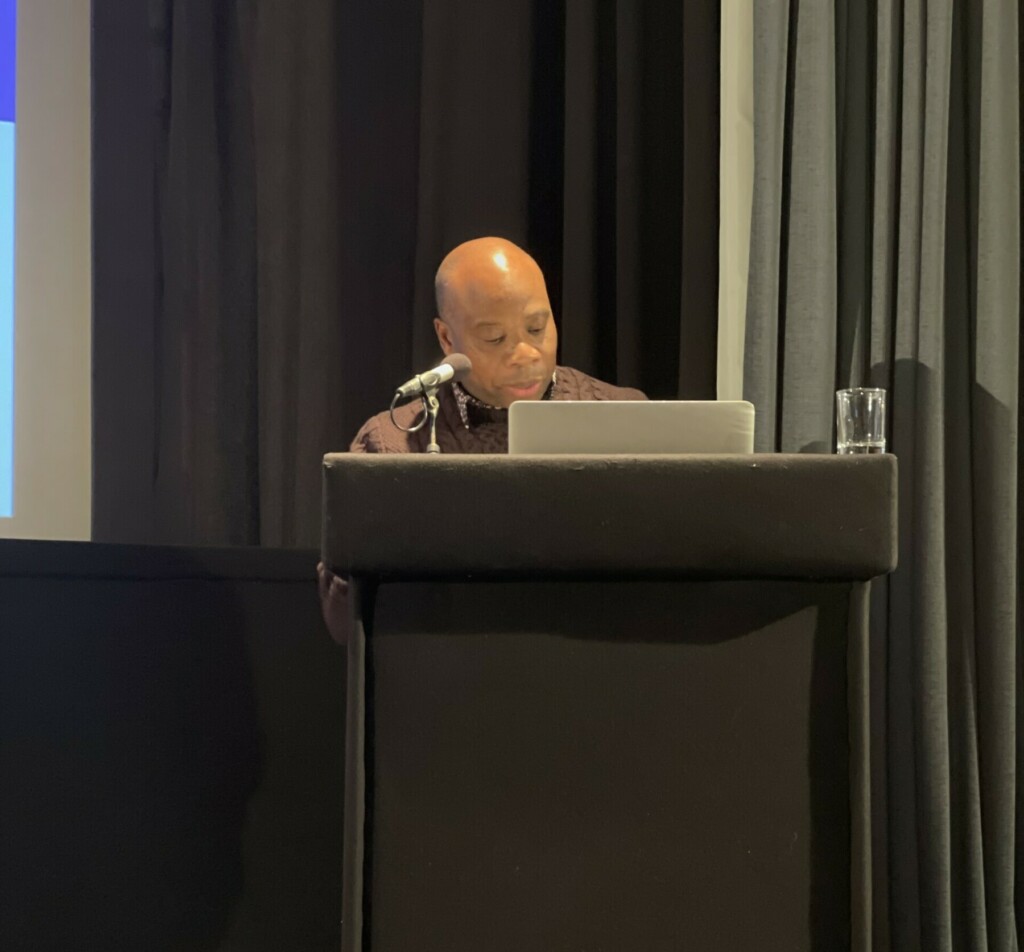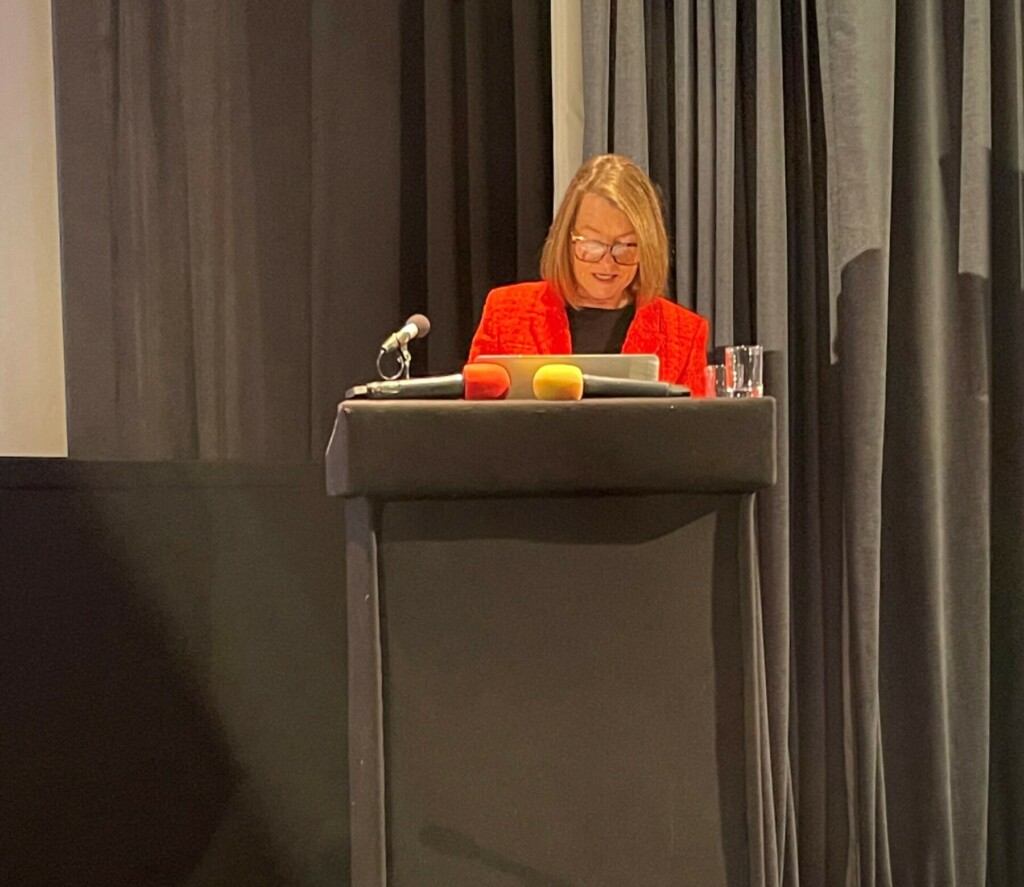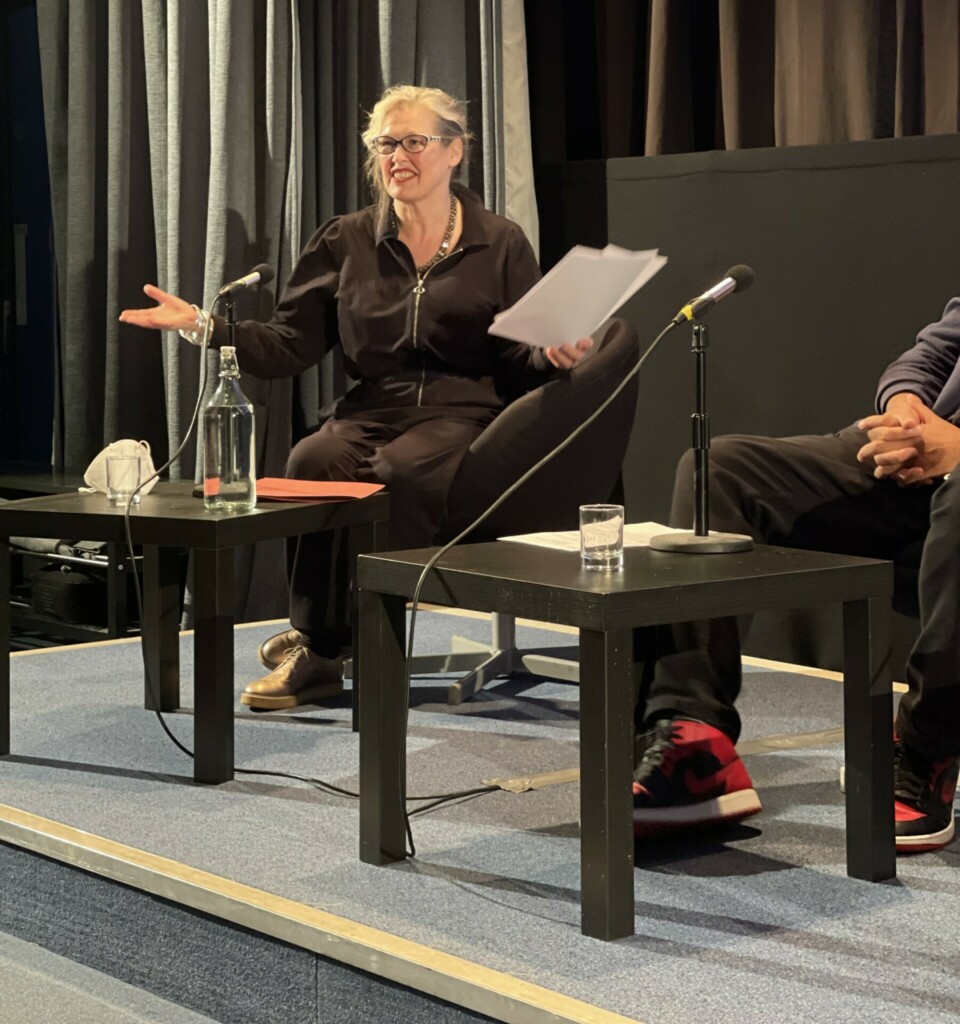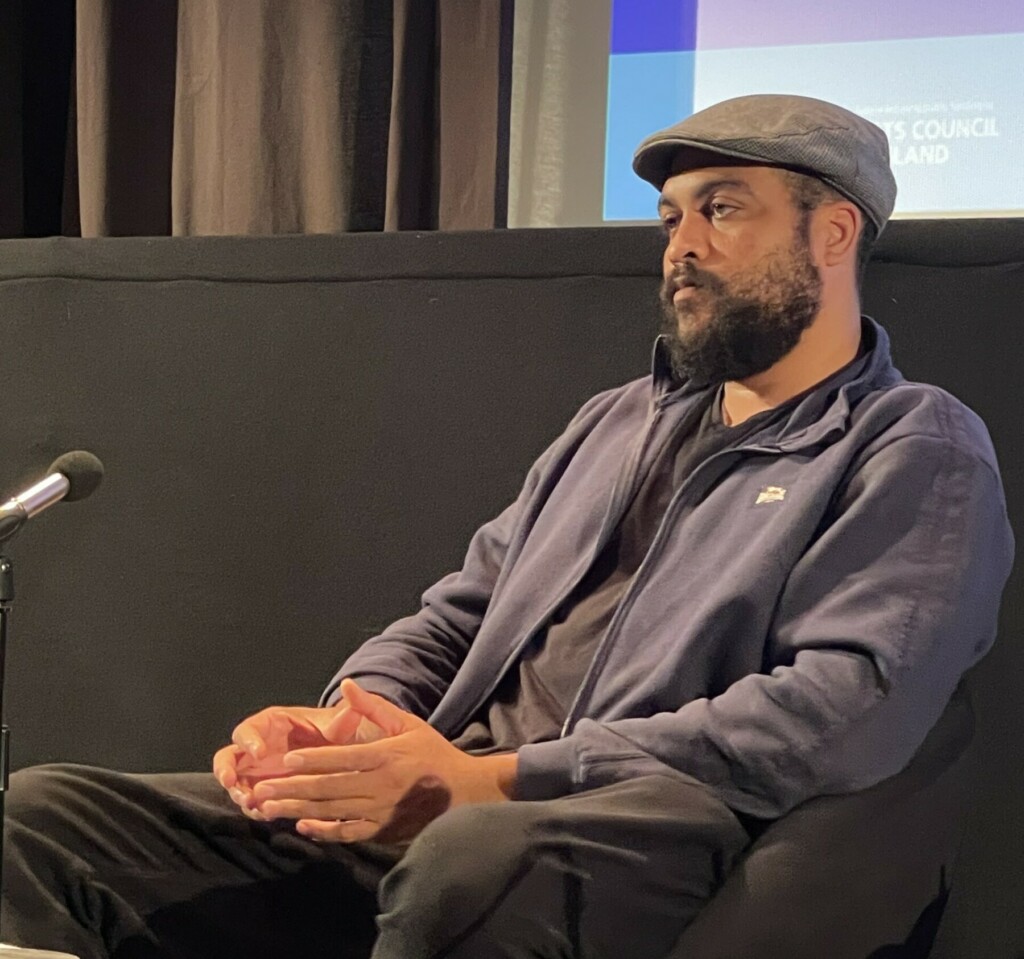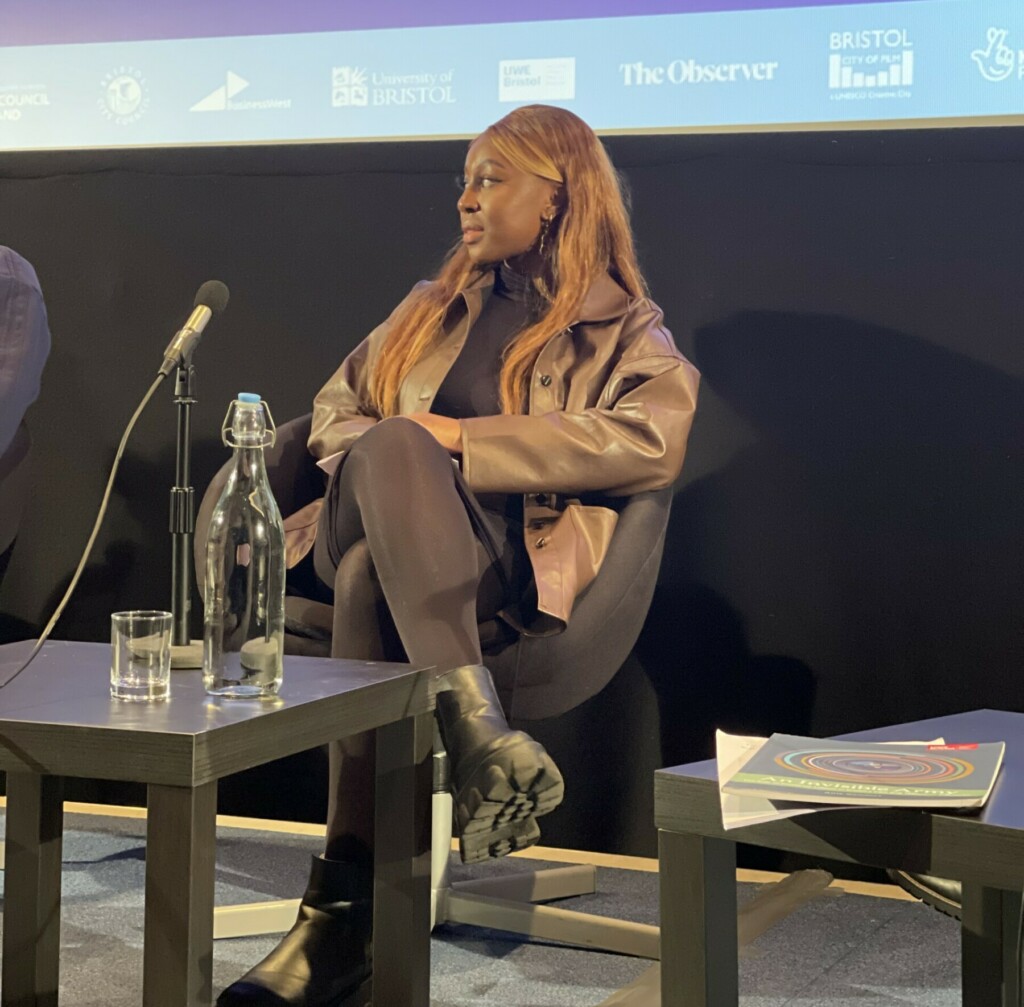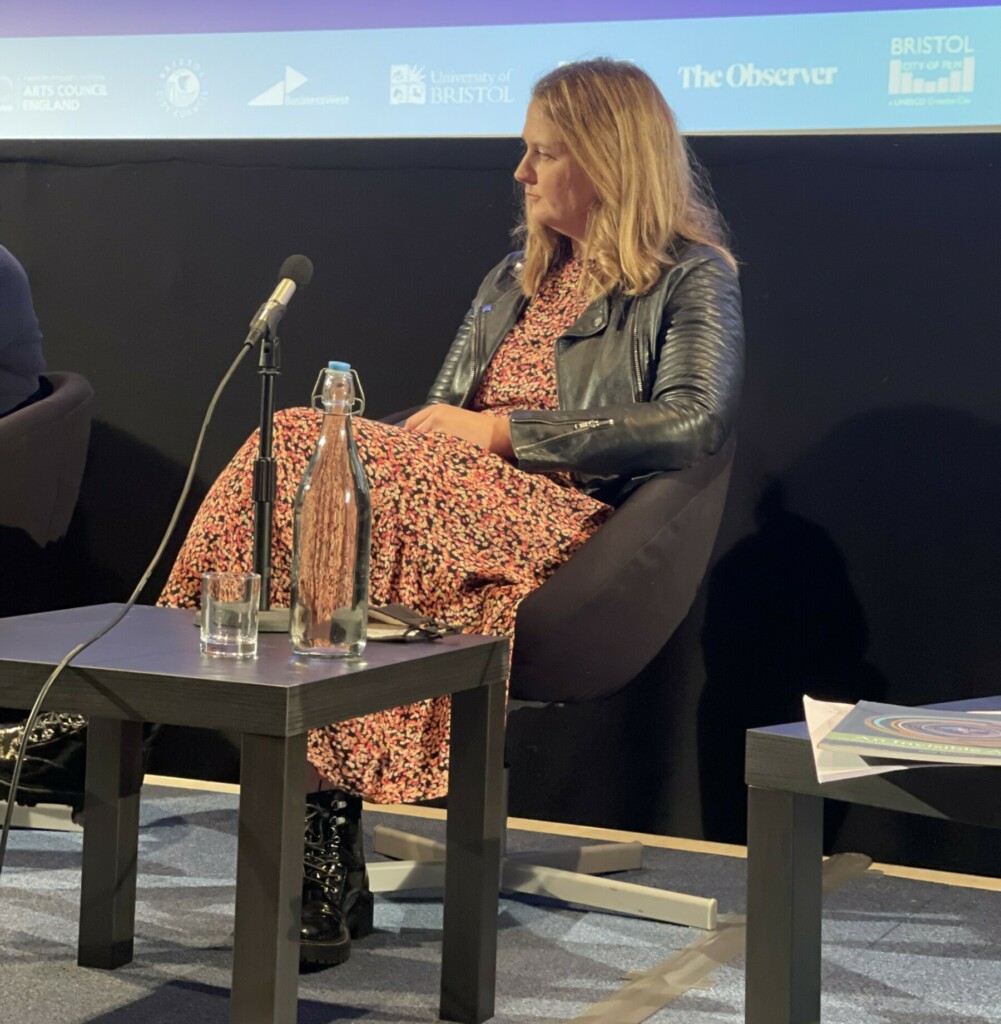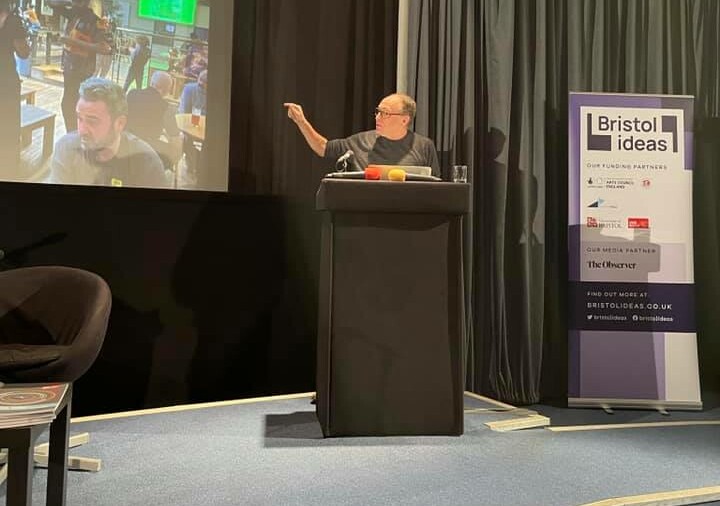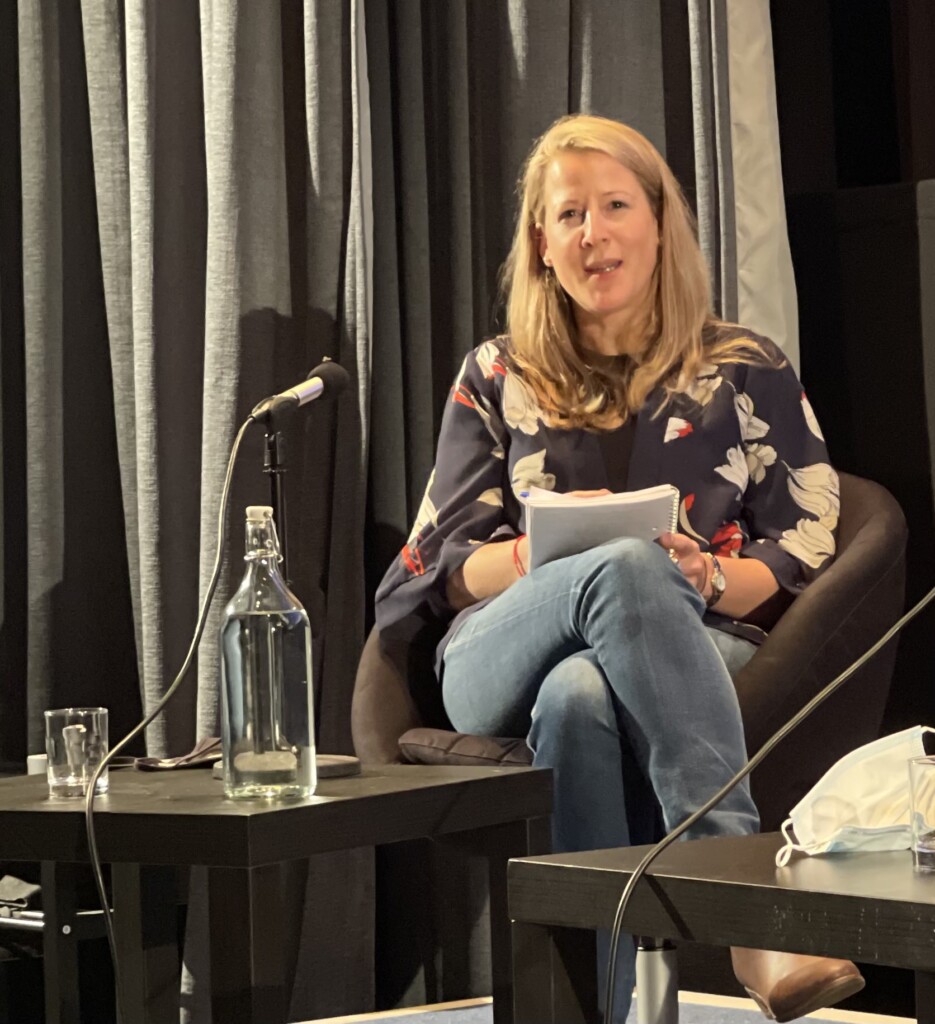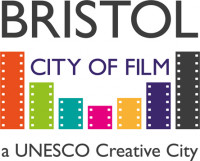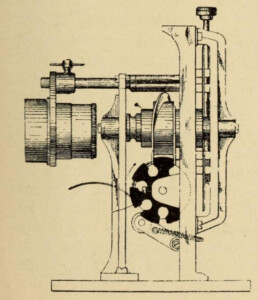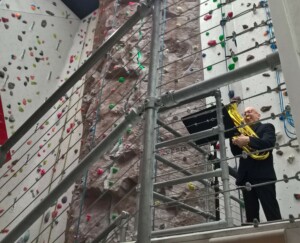How Do We Maximise the Potential of Film and Cinema in Cities? Event report
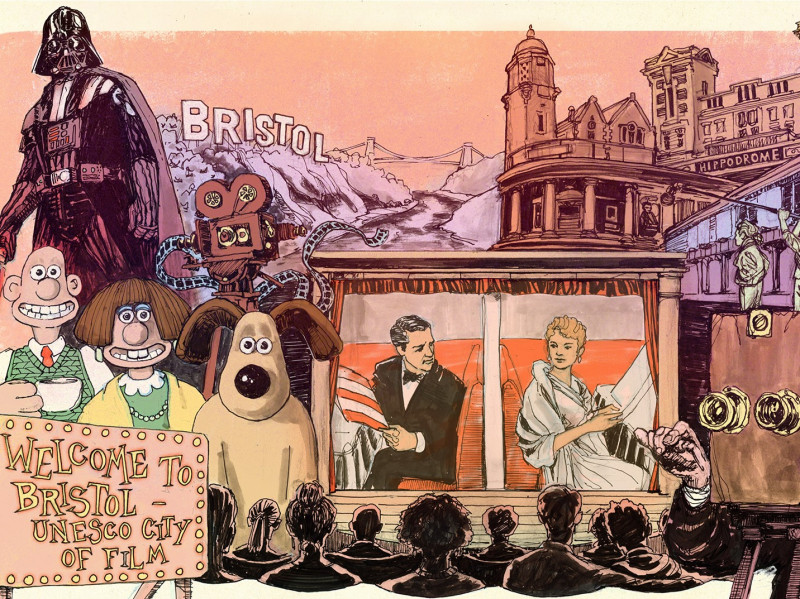
Share this
On 21 October, as part of Film2021 and the Festival of the Future City, an event was held to examine the current status of film and cinema in Bristol and the value of the moving image to cities generally.
This report provides a summary of what was discussed on the day. The event was hosted by Andrew Kelly, Director of Bristol Ideas. In addition to the presentations and panels, five of the contributors to the book Opening Up the Magic Box read extracts from their essays (Edson Burton, Malaika Kegode, Stephen Lightbown, Mani Kidston, Sian Norris) and three films created by film-makers at the start of their careers received their big-screen premieres (introduced by Rich Warren from Encounters).
Part 1
Bristol and Film
Lynn Barlow (co-chair One City Culture Board); Steve Presence and Andrew Spicer (UWE Bristol); and Mark Cosgrove (Watershed)
Lyn Barlow: The Covid lockdown demonstrated the positive impact of film with so many people viewing material on their personal screens while confined to their homes. We’re in a Golden Age of screen content and Bristol is a global leader in this field but we clearly need an increase in public investment to support the creativity of the private sector if we are to sustain and grow the industry. We need to demonstrate that we can work collaboratively.
Steve Presence and Andrew Spicer: The UWE team is currently gathering data for a second edition of the Go West! report to capture how Bristol’s film and television industries have evolved incrementally with limited public support. Recommendations so far include: holding an annual screen-sector summit in the city; increasing support for the emergent drama cluster; and having greater industry collaboration between Bristol and Cardiff.
Mark Cosgrove: Since re-opening after lockdown there has been clearer distinction between cinema as content and cinema as a place for cultural connections. Independent cinema is crucial in providing a hub for the face-to-face engagement that can happen after a screening as well as a means to develop talent. The content of the film can be the start of a conversation that has wide-ranging implications. As an example, the screening of 12 Years a Slave at Watershed was surrounded by associated events to provide context and post-screening discussions in the cinema and in the more informal setting of the cafe/ bar. This could not happen at a multiplex. In addition to thriving independent exhibitors, we need to get more feature films set and filmed in Bristol using local talent and stories that can travel nationally and internationally.
Bristol, Friese-Greene and City of Film
Peter Domankiewicz
Bristol-born William Friese-Greene’s reputation was trashed in the centenary of his birth so it seems right to re-establish it in the centenary of his death. Peter Domankiewicz began his own career in film-making in Bristol with the support of Bristol Film Workshop and Watershed’s film and video department. He was later involved with Picture This which provided training and facilities for people who might otherwise have not had an opportunity to make films. At the time there was an assumption within the profession that if you had talent you would go to London; if you were in Bristol you therefore lacked talent or ambition. The perception has changed since then. In the nineteenth century, Friese-Green went to London to be a successful photographer but through the development of his portable film camera he demonstrated that filming could happen anywhere and did not need to be tied to a big industry or a big city. He contributed to the democratization of film-making that has been greatly enhanced in recent years with the development of new technologies. Now you can stay in Bristol and be a film-maker, if that’s what you want to do – and that’s what Friese-Greene would have wanted.
Part 2
The Importance of Film and Cinemas to Cities
Karen Merkel (UK National Commission for UNESCO) and Natalie Moore (Bristol UNESCO City of Film)
UNESCO was formed after World War Two as a means of building peace through education, science and culture. Bristol is an example of a perfect UNESCO city where culture and creativity are embedded in the urban fabric. Being awarded the status of UNESCO City of Film in 2017 shows that Bristol embodies UNESCO values at an excellent level, including in terms of sustainable development. As our urban environment becomes more dense, the challenge of achieving social cohesion grows. This is where creativity can give back to the city in a meaningful way. Everyone should have the opportunity to contribute to a city’s story-making and story-telling.
Making Film Sustainable
Andie Clare (Icon Films), Lucie Muir (Wildscreen) and Kristina Turner (Filmmakers for Future: Wildlife). Jenny Lacey chaired.
It is becoming increasingly important to be able to measure the impact of film-production on the environment. Offsetting is not enough; the impact (both physical and virtual) must be reduced. Wild-life films have to drive behaviour change in terms of the message they deliver and their production/ exhibition must set a good example for others in the industry. International wild-life film=making has a huge environmental impact. Technology is being developed at UWE that will mean fewer people need to be sent abroad to make the films. In addition, local people at the film locations are being trained so the number of British technicians needing to travel might be reduced in the future.
The Future for Film, Cinema and Bristol
Michael Jenkins (film-maker), Natalie Moore (Bristol UNESCO City of Film) and Stacey Olika (Channel 4). Laura Marshall (Icon Films) chaired.
The key elements of sustainability for the sector in Bristol that were identified included education, infrastructure, diversity and inclusion. There needs to be a circular economy in which as the demand for content grows, the investment is made into jobs and learning for the future. Talent needs to be proactively supported at the grass-roots, entry level with clearly marked pathways from making content for TikTok on a phone to entering the industry as a professional. Schemes need to be supported by funders, distributors and commissioners to have an impact; be well and widely promoted; be embedded in the community; and provide after-care to improve retention. Technology is democratising the industry. Young people no longer watch television; they choose to watch online. To be sustainable, companies must therefore think about how they can be part of those digital releases. Future content will be increasingly focused on dramas and Bristol should be a hub for that creation (and particularly in creating dramas that use authentic Bristol talent, voices and stories). The industry will benefit financially by being representative of the wider population through increasing diversity on-screen and behind it. This will also demonstrate ethical behaviour.
See the event page for How Do We Maximise the Potential of Film and Cinema in Cities? for speaker biographies.
View the films of the event on our YouTube channel: Part 1 and Part 2.
Listen to the audio recordings of the event on our SoundCloud channel: Part 1 and Part 2.
Film2021 illustration by Willem Hampson. All photos by Andrew Kelly.
